TTRPG Retrospective for 2023
It’s that time of the year when we reflect on our twelve months of TTRPG’ing! You might know that I love stats and spreadsheets and graphs, but once again you won’t see any here: I find that social gaming circles get a bit too much into a contest about who played more sessions and systems. But compared to previous years, I want to get into a more detailed reflection this year.
Slow and Steady
As usual, my gaming schedule was steady: two or three games a week, all with the same three groups. I prefer medium-or-longer campaigns (at least a dozen sessions) to one-shots. When I play one-shots, they tend to last two or three sessions, although that’s partly because our online sessions skew towards being short (two to three hours), and the games skew towards investigative adventures with enough room to breathe some roleplay into it. I’ve seen others get through similar scenarios in two hours tops, but it often feels rushed to me.
I also prefer playing with friends, so I don’t have “spikes” of gaming activity featuring a variety of systems and settings that you get when you play in a game convention. Conventions are mostly about playing one-session one-shots with strangers, so it’s obviously not much my cup of tea. I suspect however that it’s also a consequence of British Columbia’s rather poor gaming landscape, with barely any TTRPG convention being run as far as I know. I might be more interested in conventions if I had some good nearby ones conductive to catching up with friends.
Playing Old Games
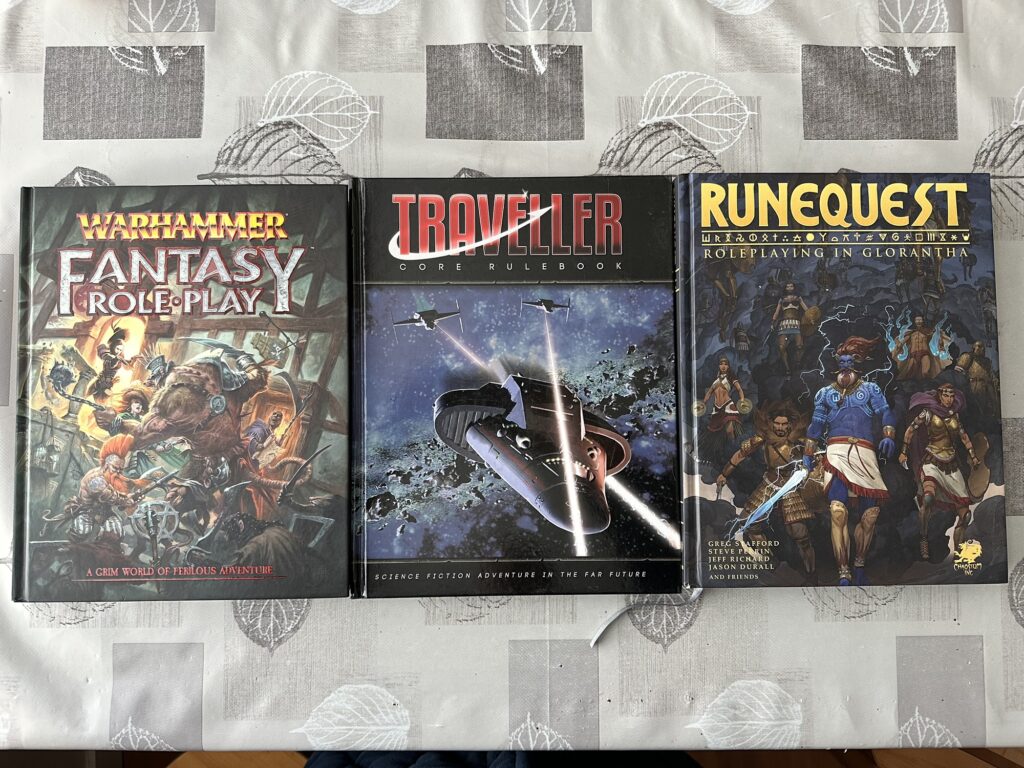
This year I continued playing old classics that I had never played until a year or two ago:
- Warhammer Fantasy Roleplaying: I’m still playing in the classic Enemy Within campaign, and it’s a fun romp through the Empire. I loved infiltrating Chaotic cults as a double-agent, helping destroy them from the inside, and navigating Altdorf’s politics as an up-and-coming noble.
- Traveller: we finished our short campaign of Traveller, going through a handful of scenarios randomly-picked from Mongoose’s catalogue. I personally liked the Traveller system quite a bit, but wasn’t too keen on the Third Imperium setting which felt a bit bland. I think my players were not fans of the life-path character creation, as a few of them rolled horribly. I’m not sure if we’ll get back to Traveller, but if we do I might offer the point-buy method from the Traveller Companion. I’d be interested to play one of the actual campaign books like Pirates of Drinax or Secrets of the Ancients.
- RuneQuest Glorantha: another group is still going with RuneQuest Glorantha. We all have a love/hate relationship with the system (with varying ratios), but we probably all have Stockholm Syndrome by now.
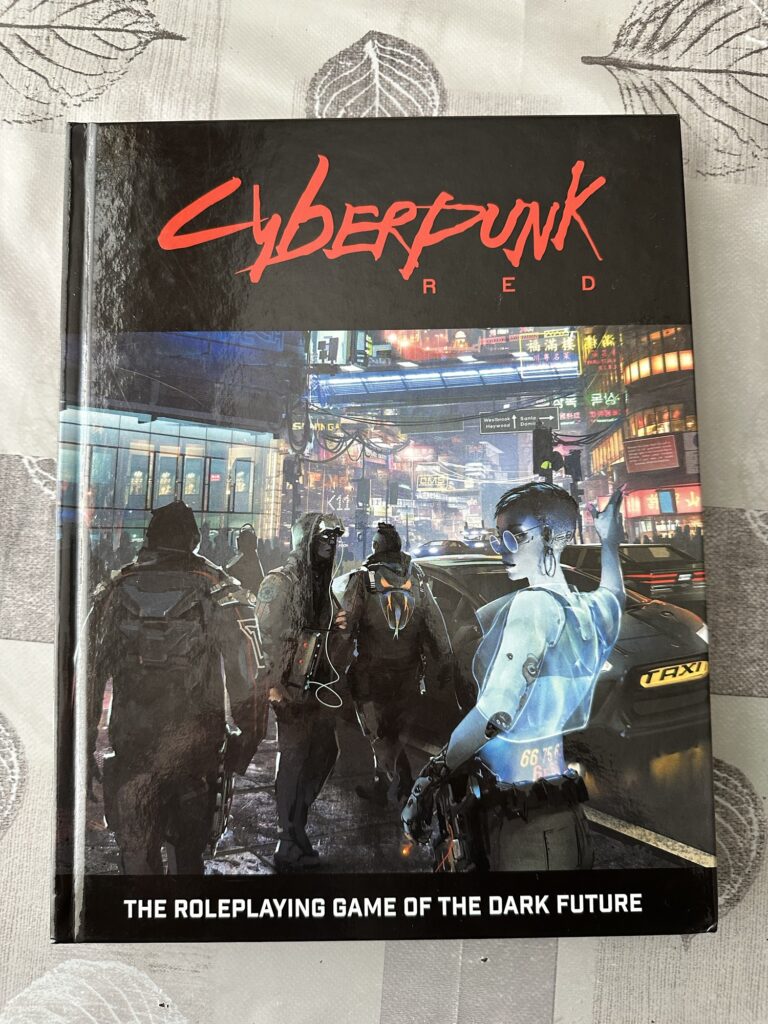
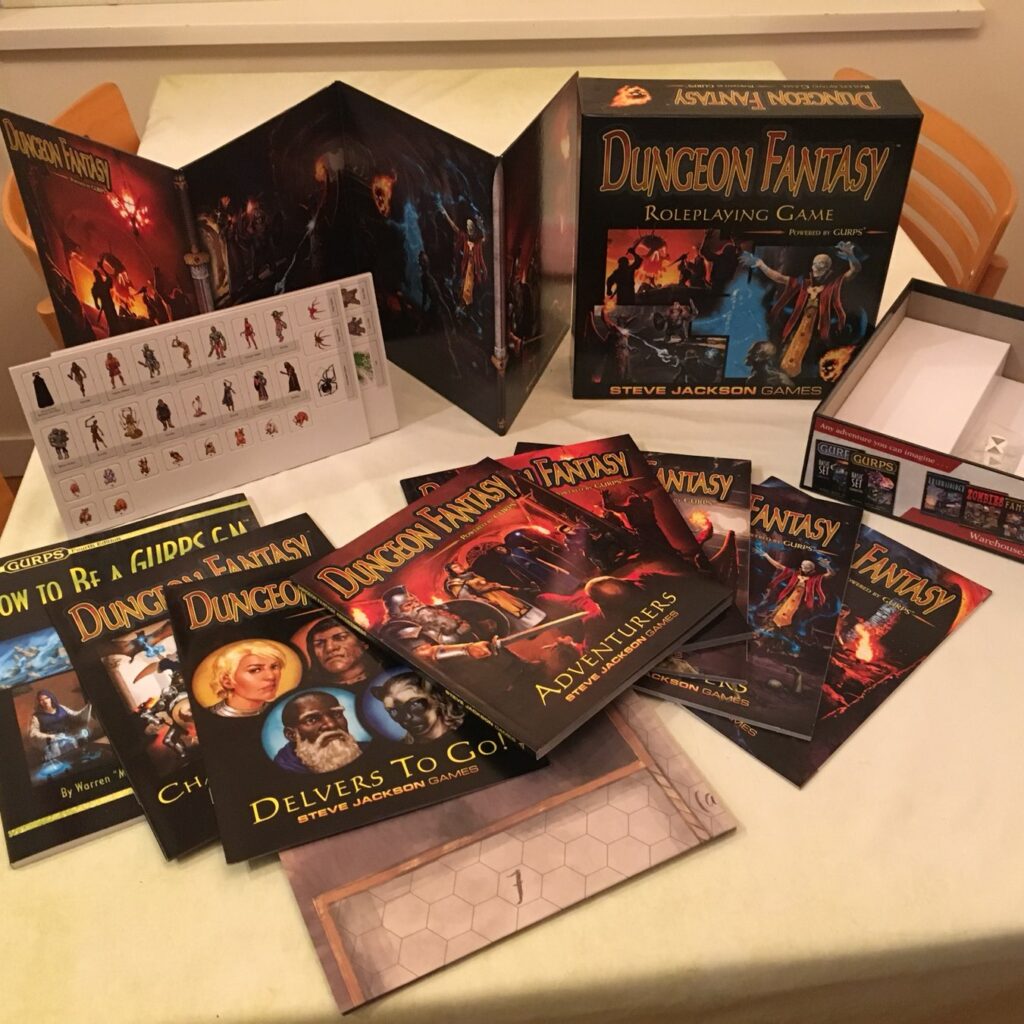
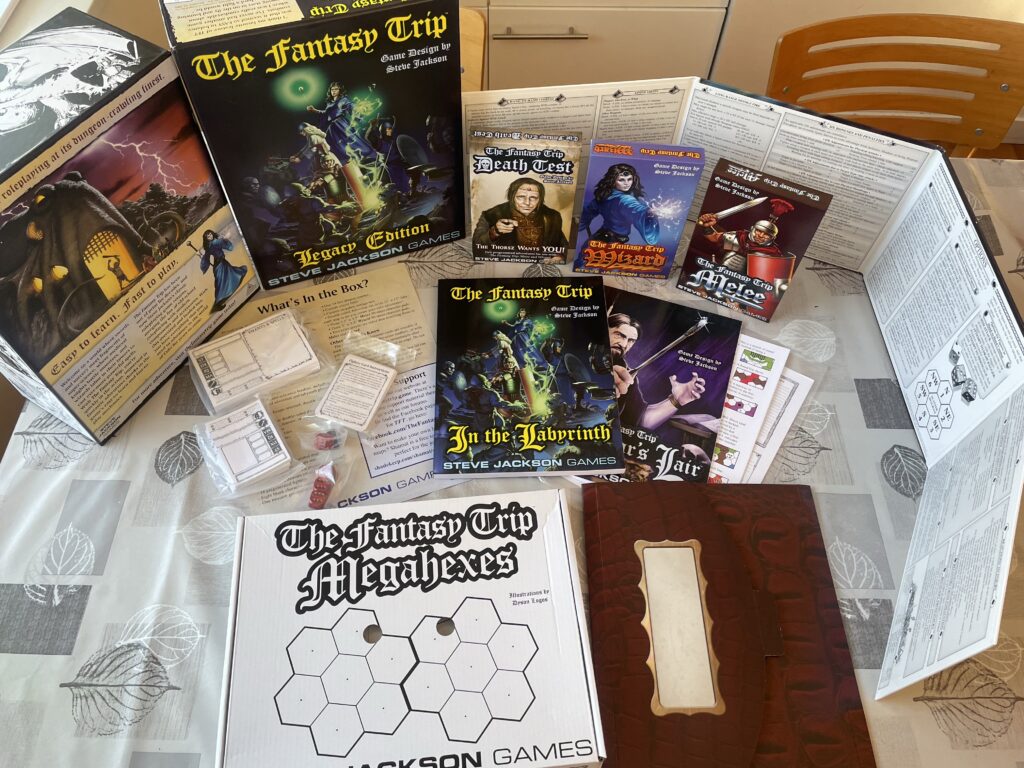
I also caught up with one of my very first TTRPGs, Cyberpunk 2020, in its latest form as Cyberpunk RED. I’m usually GMing with that group but luckily I managed to get one of the players to GM instead! We are only three or four contracts into our campaign. I’m having fun playing a Netrunner to check out the new mechanics, which I think are a big improvement over the old edition’s Netrunning. Some other new rules and design choices are quite baffling, but we make do.
Last but not least, I managed to go back to one of my darlings, GURPS, with The Fantasy Trip and Dungeon Fantasy. The latter is pretty much GURPS 4th edition tweaked specifically for dungeon crawling, which isn’t super interesting to me, but it was good to play GURPS again. The Fantasy Trip is also dungeon crawling but you can play it without a GM, almost like a board game, which brings an interesting element to the evening. Also, as a GURPS fan, it was very interesting to see the very early form of that system, and its evolution from Melee & Wizard to In The Labyrinth.
Modern Interludes
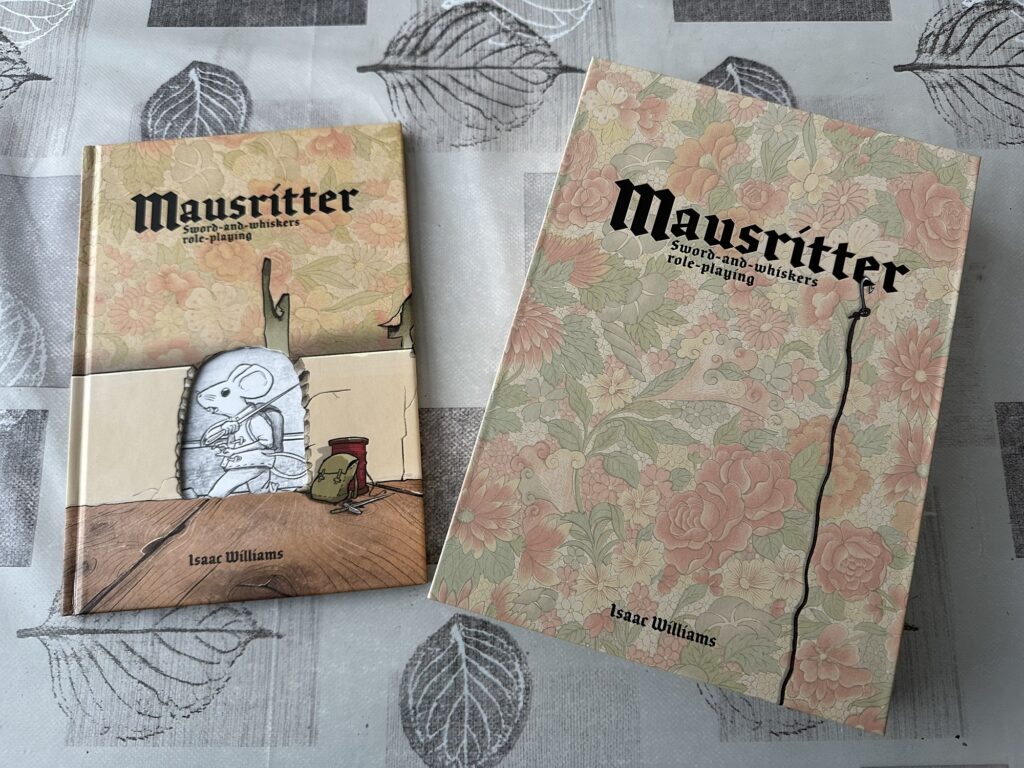
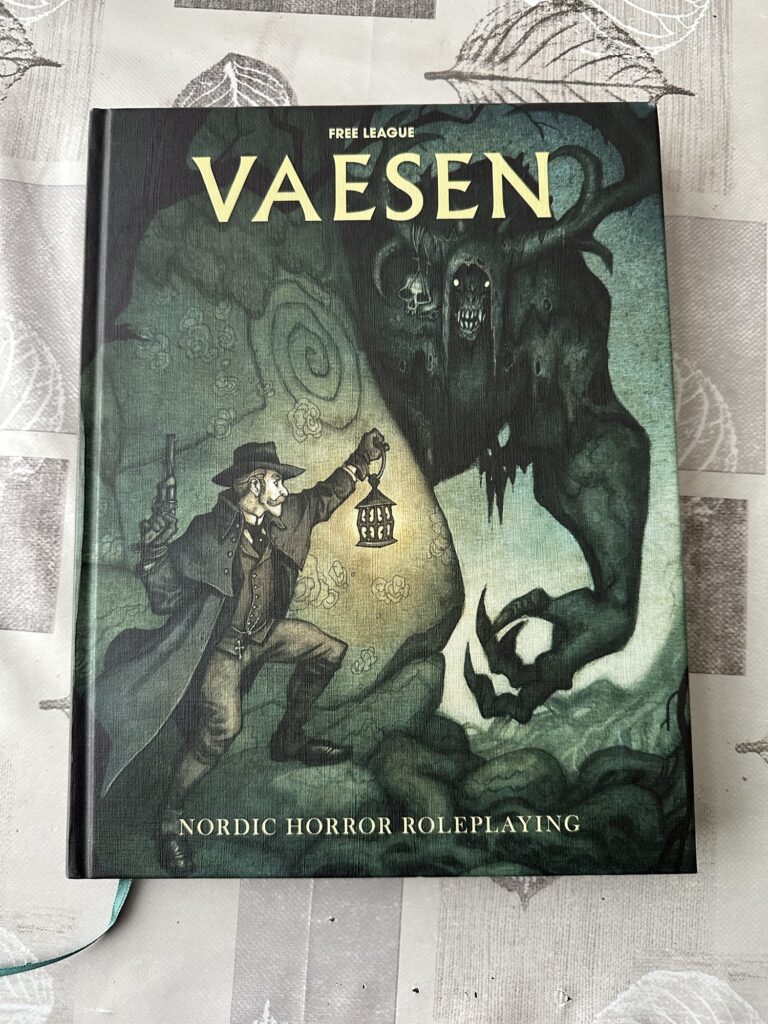
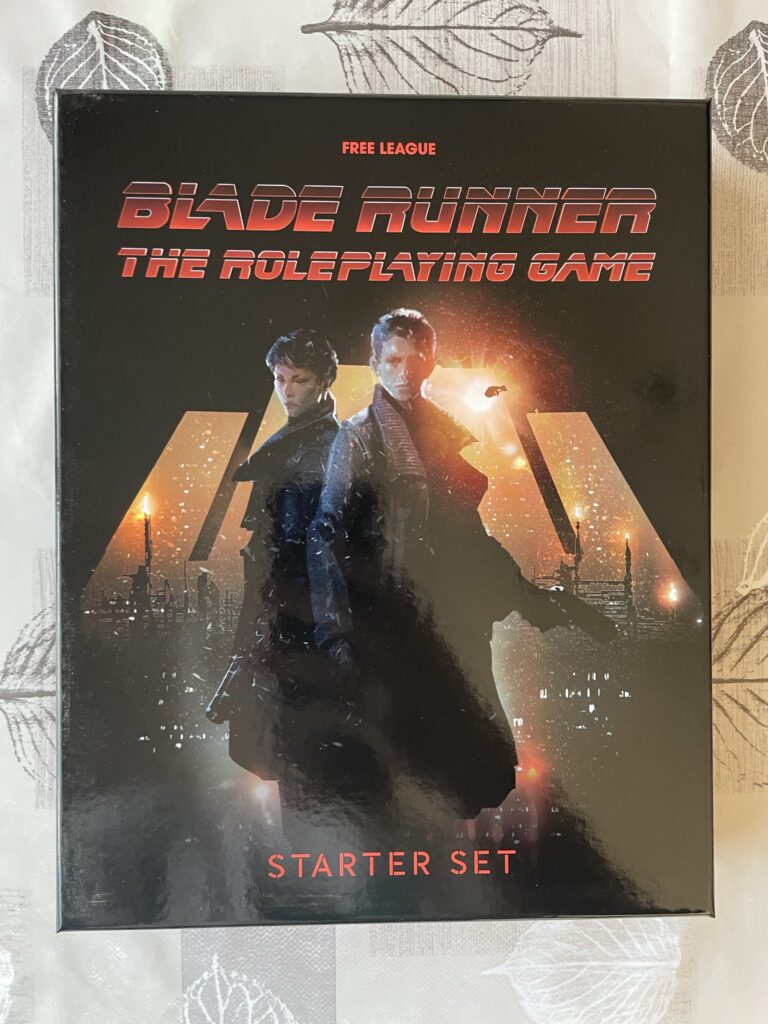
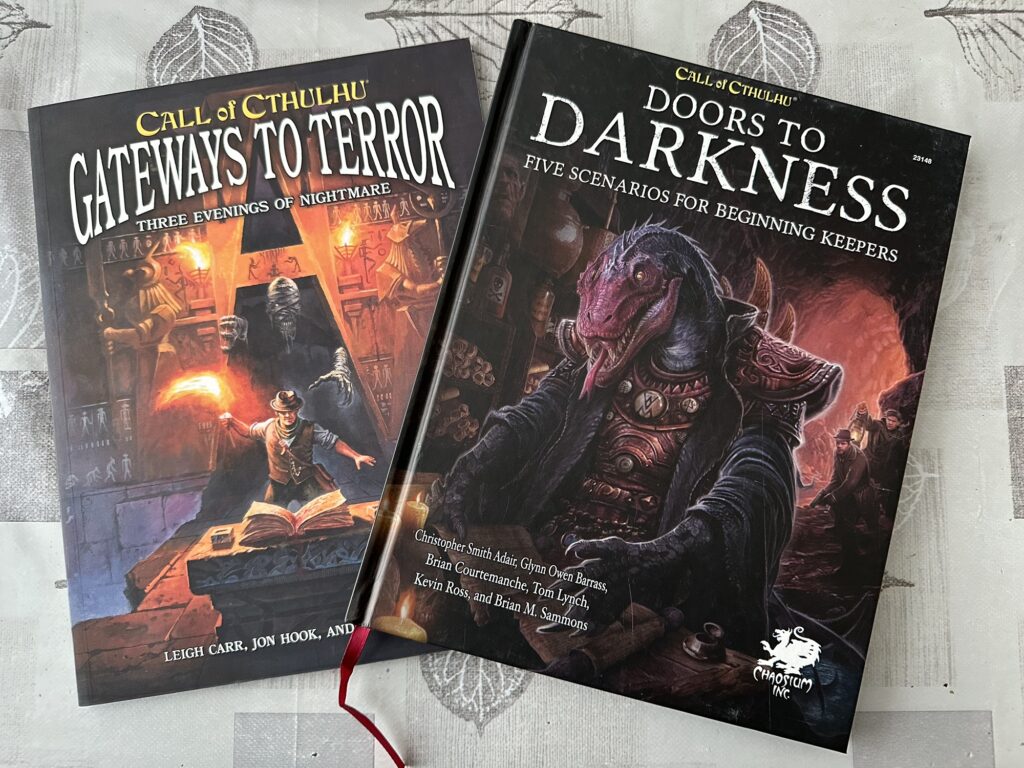
In between these campaigns, we played a few modern games as interludes. Some highlights included:
- Blade Runner RPG: the Blade Runner Starter Set was surprisingly good. The investigation is tightly designed and allows for lots of variation. I GMed this one twice and the players went through very different paths, with quite different endings.
- Mausritter: this fun game continues to be a good pick when a regular game can’t happen at the last minute. It’s simple, and requires almost no preparation. Plus, I like how it looks at first glance like a bunch of cute little mice having adventures, but in reality it can be quite horrible and brutal.
- Vaesen: we played a couple of investigations and I’m starting to really like this game. The Year Zero Engine system ticks many of my boxes, and the folk horror setting is really engaging.
- Call of Cthulhu: this isn’t quite a “modern” game, but we are playing through the 7th edition books of one-shots, so I guess it counts? I’m a bit displeased with how these new adventures skew towards “Pulp Cthulhu”. I think for the next interlude games of Call of Cthulhu I’ll instead dig into older edition scenarios. I already removed Pushed Rolls and Luck in our last games, and I think it was better.
GMing Techniques
One thing I’d like to retrospect on is my continued effort to become a better a Gamemaster. Here are things I’ve tried, or looked into trying, this year:
- Plot Point Campaigns: I’ve started writing our RuneQuest Glorantha game as a Plot Point Campaign, inspired by the Savage Worlds framework of the same name. Most Savage Worlds settings include such a framework, from 50 Fathoms to Deadlands or Slipstream or whatever. I find that it’s a great way to mix sandbox gaming with an over-arching plot. In this case, the over-arching plot is of course my own take on the Gloranthan meta-plot of the Hero Wars.
- Diverging Meta-plots: speaking of meta-plots, I’m looking into diverging from the usual Gloranthan one. I’ve started designing places and moments for the players to mess it up. I think that sending my Glorantha-savvy players into the unknown would make for a more exciting campaign…
- House Rules and Sub-Systems: like I said earlier, we have a love/hate relationship with the RuneQuest Glorantha system. It’s a very crunchy system, with crunchy combat and crunchy magic. I wish it was less crunchy and more consistent, but it is what it is. And this makes me want to come up with other crunchy sub-systems to handle other things that I think deserve equal spotlight or tactical choice. I arguably went a bit too hard with house rules (including a sub-system for… erotic pillow-talk intrigue!) but my players haven’t complained yet!
- Framing Failure: one of the many things that Call of Cthulhu taught me a long time ago was the idea of “failing forward”, in which a failed roll doesn’t necessarily mean that nothing happens. However, I’ve also been focusing lately on better framing the failing character, especially when it comes to “fumbles”. Not all games benefit from incompetent characters that break their lockpicks, drop their swords, or slip and fall in the mud. Instead, I’ve been trying to frame failures and fumbles as external or unforeseen circumstances. Characters should still look competent and heroic even in failure.
- Encounter Design: so much of my formative gaming years were spent playing Call of Cthulhu and Delta Green that I never had to prep NPC and monster stat blocks much: I could just assume they are very powerful and can get rid of anybody easily… I was mostly handling it narratively behind the screen. But that was a mistake, and I want to start thinking about encounter design a bit more: interesting locations, environmental effects, actions-per-round economy, countdown to special events, etc. I’ve got a lot to learn and experiment with here.
- Foreshadowing: foreshadowing is somewhat easy with a pre-written adventure, but I find it harder to achieve in a sandbox campaign. Still, I started dropping clues and hints, just in case. I have yet to see how much it pays off, and whether it’s worth the trouble.
- Faction Play: so far my “faction play” has been quite basic, with just two or three poorly defined groups. Their agendas are usually good enough for the story, but I tend to improvise a lot of their NPCs, locations, resources, and so on. I’m starting to spend a bit more effort preparing these too.
- Not Doing Stupid Things: I still occasionally fall to some of the usual GM mistakes when I’m in a hurry: asking for rolls that don’t matter, designing solutions instead of problems, etc. I usually slap myself shortly after. Hopefully I’m doing it less and less.

Trying to plan my next TTRPG year is as useless as trying to plan for what players will do in an adventure, but I do have a short list of goals:
- Play (or, most likely, GM) Pendragon, Monster of the Week, and Delta Green. Pendragon would probably be with the new 6th edition, but I may skip the Starter Set adventures and dig instead into some of the old books. Monster of the Week might be a good alternative “interlude” game. As for Delta Green, one of my absolute favourite games, it’s a shame that I have so far only been able to play a few one-shots. I definitely want to get a new campaign going.
- Publish at least two new adventures. I have manuscripts at various levels of completion for half a dozen different projects, and I really need to focus on those that are close to releasable.
- Continue drawing and painting for community content books. My art ended up in quite a few PDFs this year, and I’ve made some really good progress with my painting skills. It’s still an absolute struggle, but I’m starting to be somewhat OK with the results now.
Have fun with 2024, everyone!